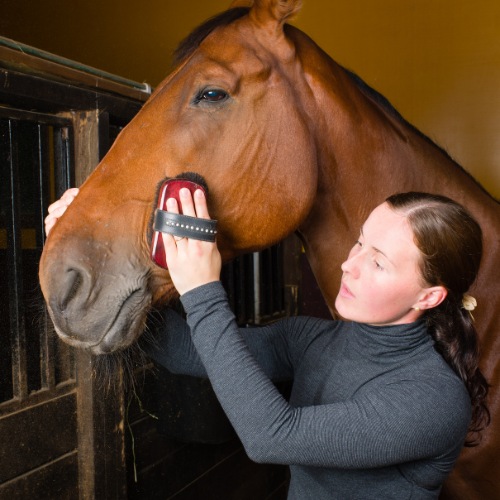Disclosure:
Thank you for reading this post, don't forget to subscribe!
Some of the links on this website are affiliate links. This means that if you click on the link and make a purchase, we may receive a small commission at no extra cost to you. Your support helps us keep the site running.Learn more on my Privacy Policy and Affiliate Disclosure page. Thank you for your support!
In recent years, equine-assisted therapy, often referred to as horse therapy, has gained attention as a powerful form of therapeutic support for mental health and well-being. While horses have long been admired for their strength, grace, and companionship, their role in mental wellness is only now being fully appreciated. Horse therapy involves working with horses under the guidance of trained professionals, creating a structured and healing environment that helps individuals with mental health challenges build trust, manage anxiety, and develop emotional resilience.
This article explores the remarkable impact of horse therapy on mental health, delving into its methods, benefits, and the ways it can enhance personal growth and mental wellness.
What Is Horse Therapy?
Horse therapy, also known as equine-assisted therapy (EAT), is a therapeutic approach that involves guided interactions with horses. Participants engage in a variety of activities, such as grooming, feeding, and sometimes riding horses, while therapists observe and provide guidance. These interactions aim to promote emotional healing, develop coping skills, and build self-confidence.
One of the unique elements of horse therapy is the non-judgmental nature of horses. Horses are highly sensitive to human emotions, responding to body language and tone of voice, which helps individuals become more self-aware and mindful of their feelings and actions.
Different Types of Equine Therapy
There are several types of equine-assisted therapies, each catering to different therapeutic needs:
- Equine-Assisted Psychotherapy (EAP): Primarily focuses on mental health, helping individuals explore and manage emotional challenges.
- Equine-Assisted Learning (EAL): Emphasizes personal development and learning social skills, often used for children and teens.
- Hippotherapy: Often incorporated into physical rehabilitation programs, using the horse’s movements to promote physical healing alongside mental well-being.
Equine-Assisted Therapy Programs are designed to suit a wide range of needs, making them versatile and accessible to various populations.
Read next:
The Unexpected Benefits Of Horse Riding: Meditation And Stress Reduction
Horse riding. It conjures images of galloping across fields, jumping…
The Power of Mindfulness: Techniques for Daily Practice
“Mindfulness isn’t difficult. We just need to remember to do…
How Horse Therapy Benefits Mental Health

1. Reducing Anxiety and Stress Levels
One of the primary benefits of horse therapy is its ability to reduce anxiety and stress. Horses are highly attuned to human emotions, providing participants with immediate feedback on their emotional states. By observing a horse’s reactions, individuals become more aware of their own feelings and learn how to manage anxiety and stress constructively.
Working with horses also encourages people to remain present in the moment, a practice often linked to mindfulness. Being in nature, focused on the horse, and engaging in repetitive tasks like brushing or feeding can naturally lower cortisol levels (the stress hormone) and induce a sense of calm.
2. Building Trust and Enhancing Relationships
The bond formed between a person and a horse is unique and essential for therapeutic progress. Horses are non-judgmental and react primarily to an individual’s body language and actions rather than spoken words. This creates a safe space where individuals can build trust and learn effective communication skills. For many people struggling with mental health, building trust in relationships can be challenging, and horse therapy provides a non-threatening environment to work on these skills.
3. Boosting Self-Confidence and Self-Awareness
Horse therapy encourages individuals to step out of their comfort zones, building confidence as they master new skills in horse handling or riding. Each accomplishment in horse therapy, no matter how small, can be a confidence booster, reinforcing a sense of self-worth.
Additionally, horses provide immediate feedback. If a person approaches them with tension or anxiety, the horse may respond with restlessness or hesitation. Learning to adjust behavior based on this feedback helps participants become more aware of their emotions and actions.
4. Improving Emotional Resilience
Equine-assisted therapy promotes emotional resilience, helping individuals become more adaptable to stress and hardship. By working through challenges in managing and understanding the horse, participants learn problem-solving skills and patience. Over time, these skills carry over into their personal lives, allowing them to cope with stress and change more effectively.
Who Can Benefit from Horse Therapy?
Horse therapy is versatile and can be beneficial for various mental health conditions. It is particularly effective for individuals struggling with:
- Anxiety and Depression: Horse therapy provides a calming and emotionally supportive environment, which can help reduce symptoms of anxiety and depression.
- Post-Traumatic Stress Disorder (PTSD): Many veterans and trauma survivors have found relief through equine-assisted therapy, as it encourages trust-building and emotional regulation.
- Autism Spectrum Disorder (ASD): Equine-assisted learning can improve social skills, emotional recognition, and sensory processing in individuals on the autism spectrum.
- Behavioral Issues in Youth: Horse therapy can be an effective tool for children and adolescents, helping them develop responsibility, empathy, and emotional awareness.
For more on the therapeutic benefits of animal-assisted activities, see our article on the Benefits of Mindfulness for Mental Health.
The Science Behind Horse Therapy
The Role of Oxytocin and Serotonin
Interacting with animals, particularly horses, has been shown to increase levels of oxytocin, a hormone linked to bonding and trust. The presence of horses can also trigger the release of serotonin, a neurotransmitter associated with feelings of well-being and happiness. Together, these neurochemical changes can alleviate symptoms of depression and anxiety, helping individuals feel more at ease and connected.
Heart Rate Synchronization
Research has shown that the heart rates of humans and horses often synchronize when they’re near each other. This phenomenon, known as heart rate variability, reflects a natural calming response. For individuals dealing with high levels of stress, this synchrony can create a state of relaxation, helping to calm the nervous system and reduce anxiety.
For more about the physiological effects of equine therapy, the Mayo Clinic provides further insights into Mental Health Benefits of Physical Activity.
Incorporating Mindfulness into Horse Therapy Sessions

Practicing Mindfulness Techniques with Horses
During horse therapy, participants are encouraged to engage in mindfulness practices that enhance the therapeutic experience. Techniques such as focusing on breathing, maintaining posture, and observing the horse’s subtle movements help individuals stay grounded and present.
Breathing exercises are particularly effective, as matching breathing rhythms with the horse’s stride creates a calming effect. The repetitive, meditative actions involved in grooming and caring for a horse also cultivate mindfulness, helping participants quiet the mind and focus on the present moment.
The Healing Power of Being in Nature
Horse therapy is typically conducted outdoors, adding the therapeutic benefits of nature to the experience. Studies have consistently shown that spending time in nature can improve mental health, reduce stress, and elevate mood. The combination of nature and the presence of a calming animal like a horse amplifies these effects, creating a holistic environment for healing and self-reflection.
explore more:
How to Begin Your Journey with Horse Therapy
Finding a Certified Equine-Assisted Therapist
To start with horse therapy, it’s essential to work with a certified therapist who has experience in equine-assisted activities. Look for accredited programs or centers that specialize in equine therapy and offer qualified professionals to guide the experience safely.
Choosing the Right Therapy Program
Different programs offer various approaches to horse therapy, from equine-assisted psychotherapy to equine-assisted learning. Choose a program that aligns with your personal goals and mental health needs. Many centers offer introductory sessions that allow participants to experience horse therapy before committing to a full program.
To learn more about how outdoor activities benefit mental health, read our article on The Power of Outdoor Activities for Mental Well-being.
Setting Goals for Personal Growth
Before beginning, consider setting personal goals for your horse therapy journey. Whether it’s to manage anxiety, build self-confidence, or simply enjoy a unique way to unwind, having clear objectives will help you make the most of each session.
Conclusion
Equine-assisted therapy offers a unique approach to mental wellness by leveraging the calming, intuitive nature of horses. Through guided interactions, individuals can experience reduced stress, improved emotional resilience, and a stronger sense of self-confidence. Horse therapy isn’t just for overcoming mental health challenges; it’s also a path for anyone looking to connect with nature, cultivate mindfulness, and find inner peace.
If you’re curious about trying horse therapy, consider visiting a local equine therapy center to explore how it can benefit your mental health. Embrace the journey of personal growth, trust, and healing with horses as your partners in wellness.
more about:
HEALTH / WELLNESS / FITNESS / NUTRITION
Share this article














